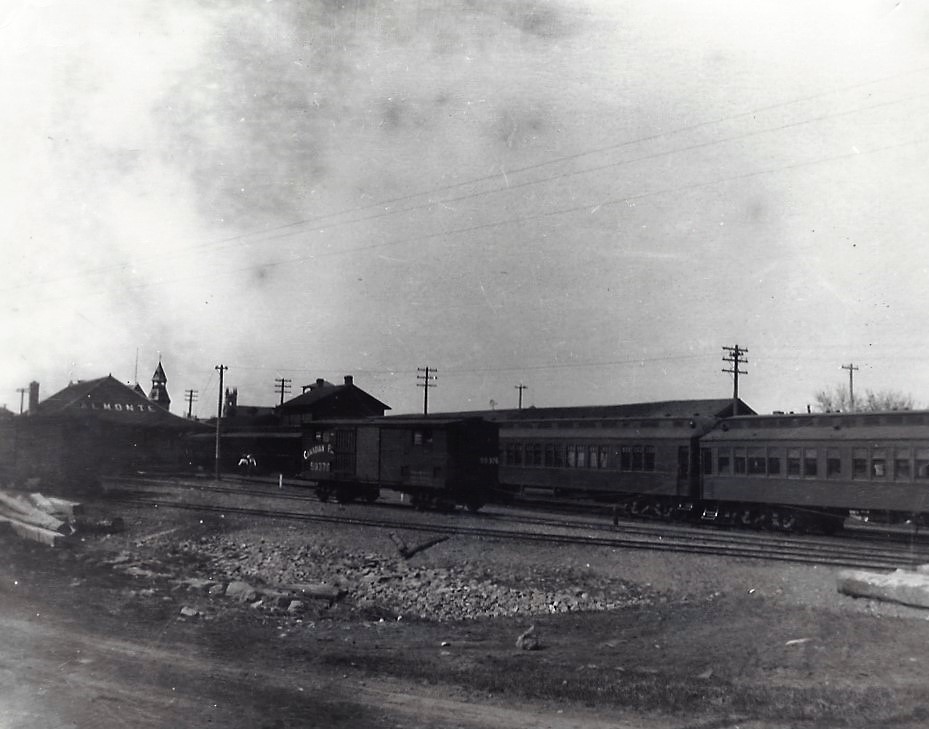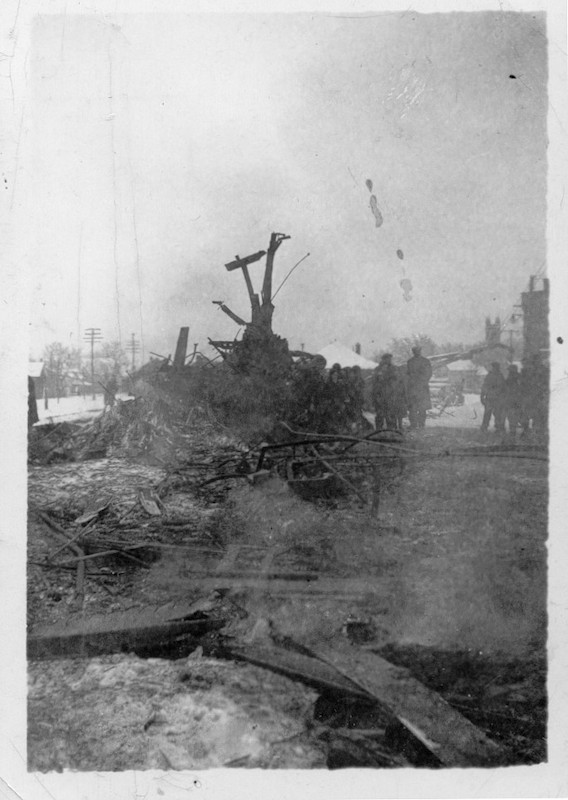Bracing for Impact
On December 27, 1942, holiday crowds and poor weather delayed the Ottawa Valley Local as it travelled through the small towns of Pembroke, Renfrew, Arnprior, Pakenham, and Almonte. Five wood coaches had been added to the passenger train and its engine, known as the “Cantankerous Old Hog,” was having more difficulty than usual carrying the extra load through the sleet and freezing rain.
The Local had left Petawawa earlier that evening and unknown to its crew, a troop train carrying soldiers followed closely behind them, having left Red Deer, Alberta on Christmas Eve. The troop train was on its way to Halifax where ships were waiting to take the soldiers overseas to serve in World War II and it was on a tight schedule to make sure they arrived on time. Due to the war effort, troop train schedules were kept secret. It was ordered to follow 20 minutes behind the Local, but despite being held at both Renfrew and Arnprior Stations, its powerful engine was quickly making time.
Running Out of Time
The Ottawa Valley Local arrived at Almonte Station at 8:32PM, now 40 minutes late. It usually only took a few minutes to load passengers, but on this night it took twice as long for all 200 passengers and their Christmas luggage to find their way aboard. The inevitable crash occurred just after the Conductor gave the first whistle to proceed. The troop train rounded the corner into Almonte and unable to stop, smashed into the rear cars of the Local, sending wood and metal debris flying. The last two cars, and much of the third, were completely destroyed. The impact snapped the Local in half and sent the front half of the passenger coaches nearly 50 meters down the track.
At the time, it was the second worst disaster in Canadian railway history, resulting in 39 deaths and over 150 injuries. Right in the midst of World War II, it was described by one survivor as“the night the war came to Almonte.”



